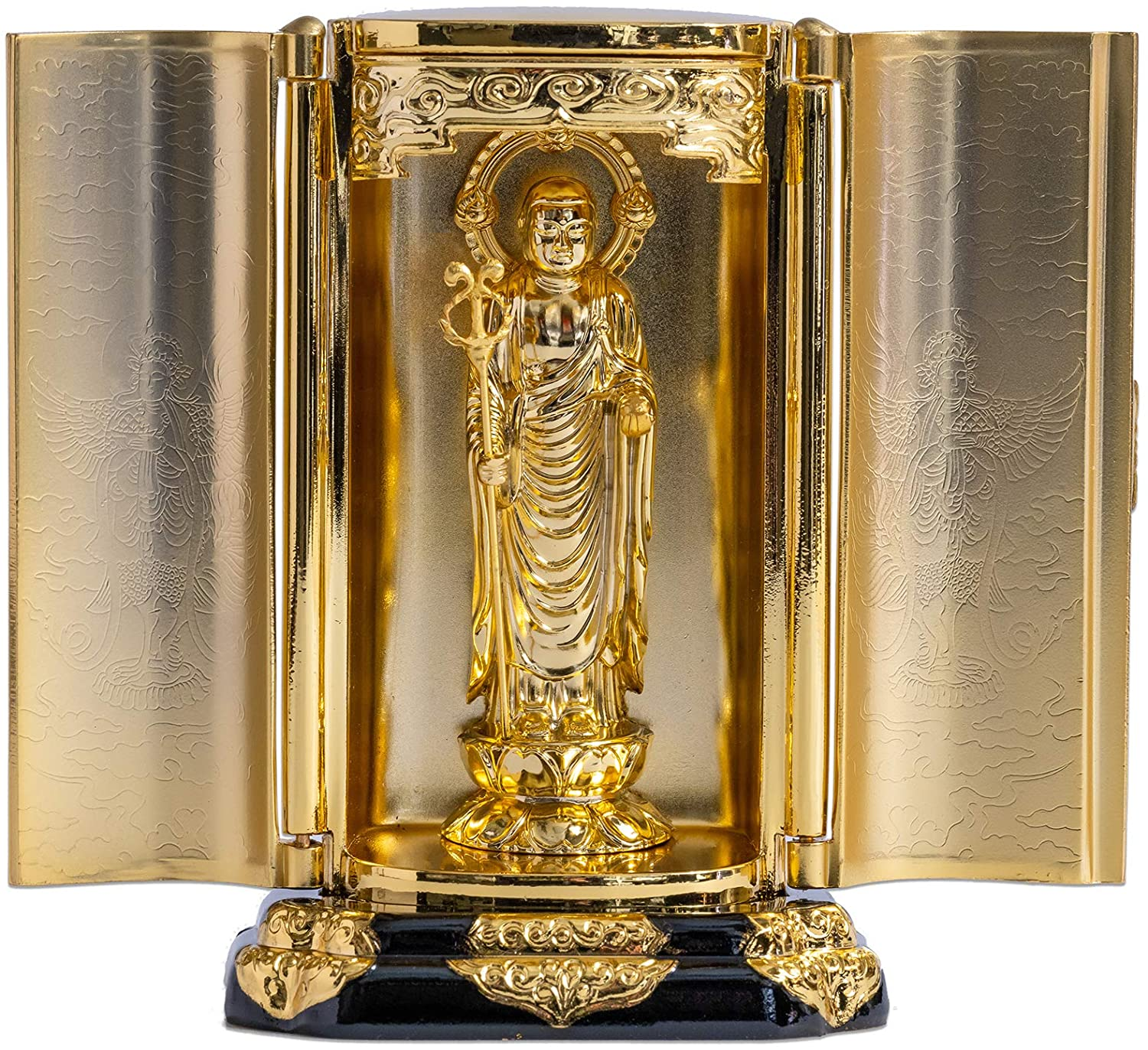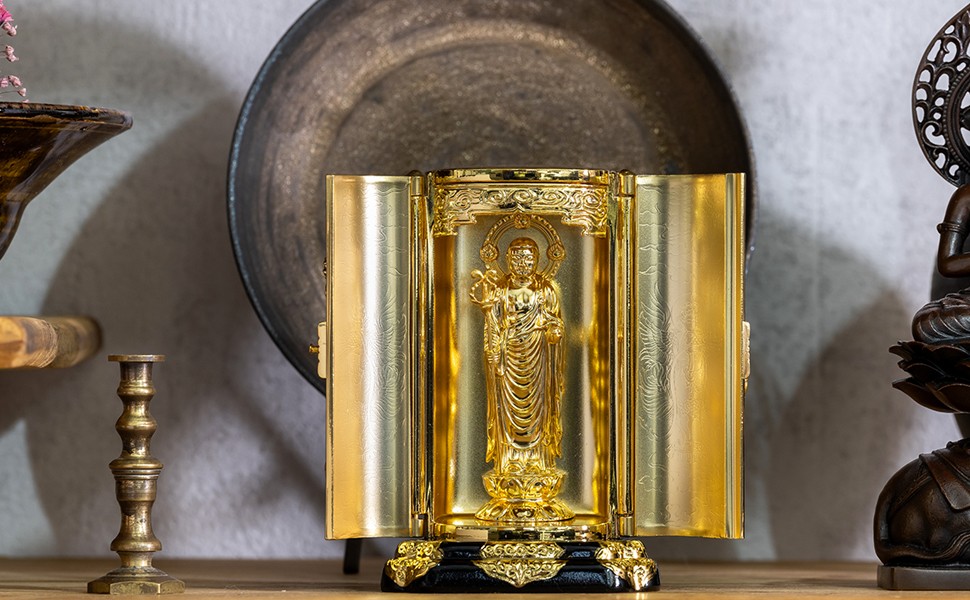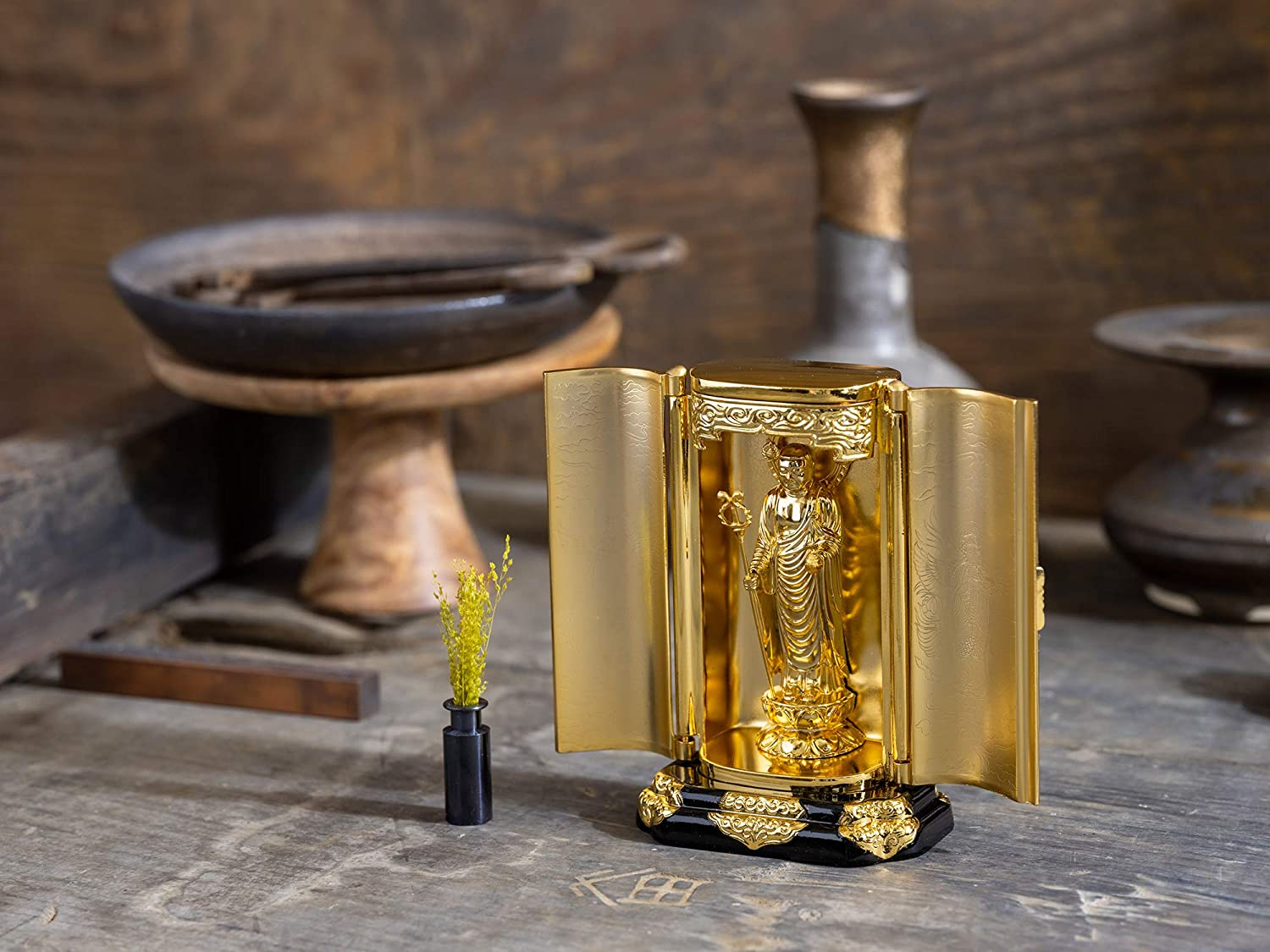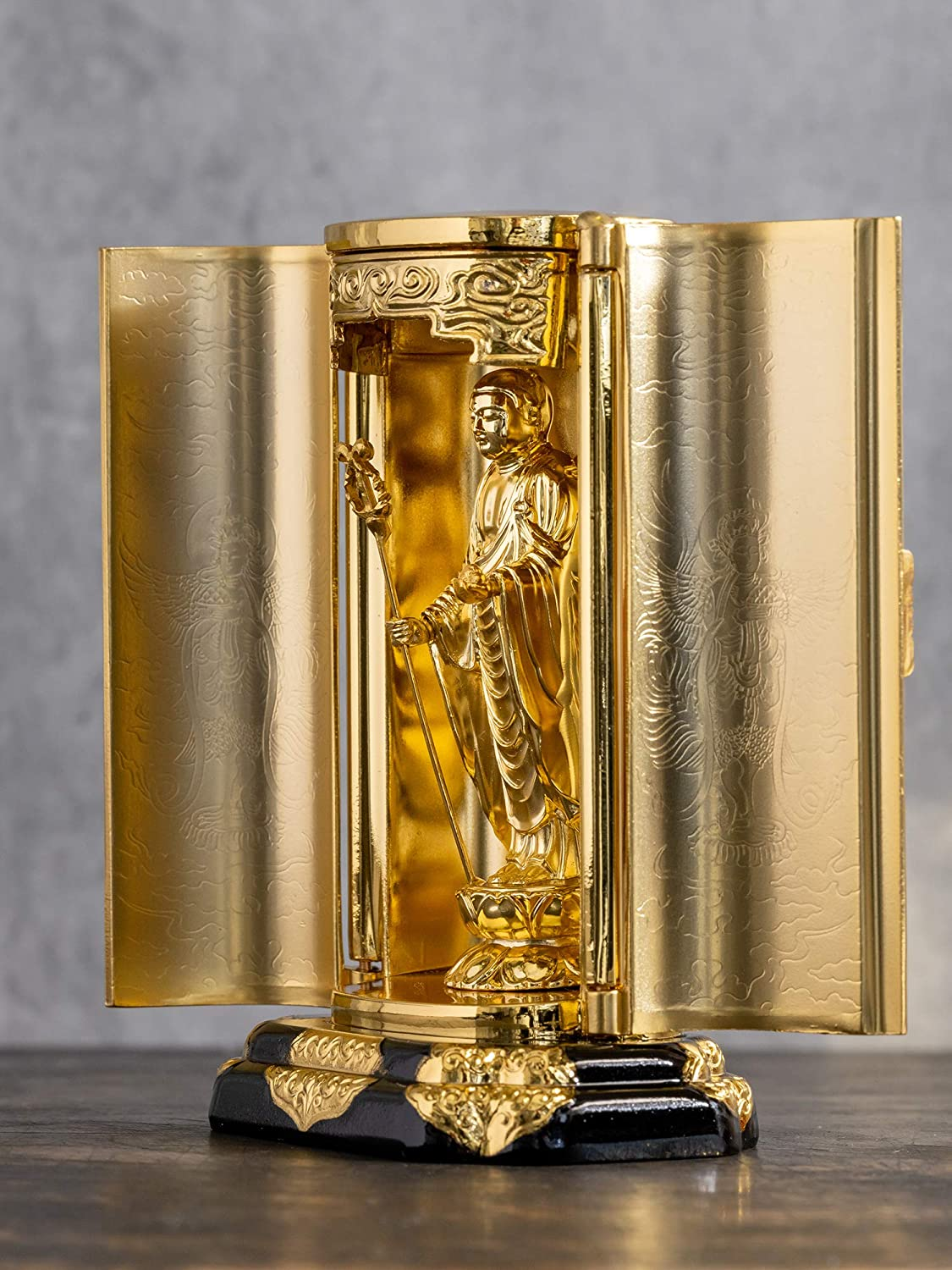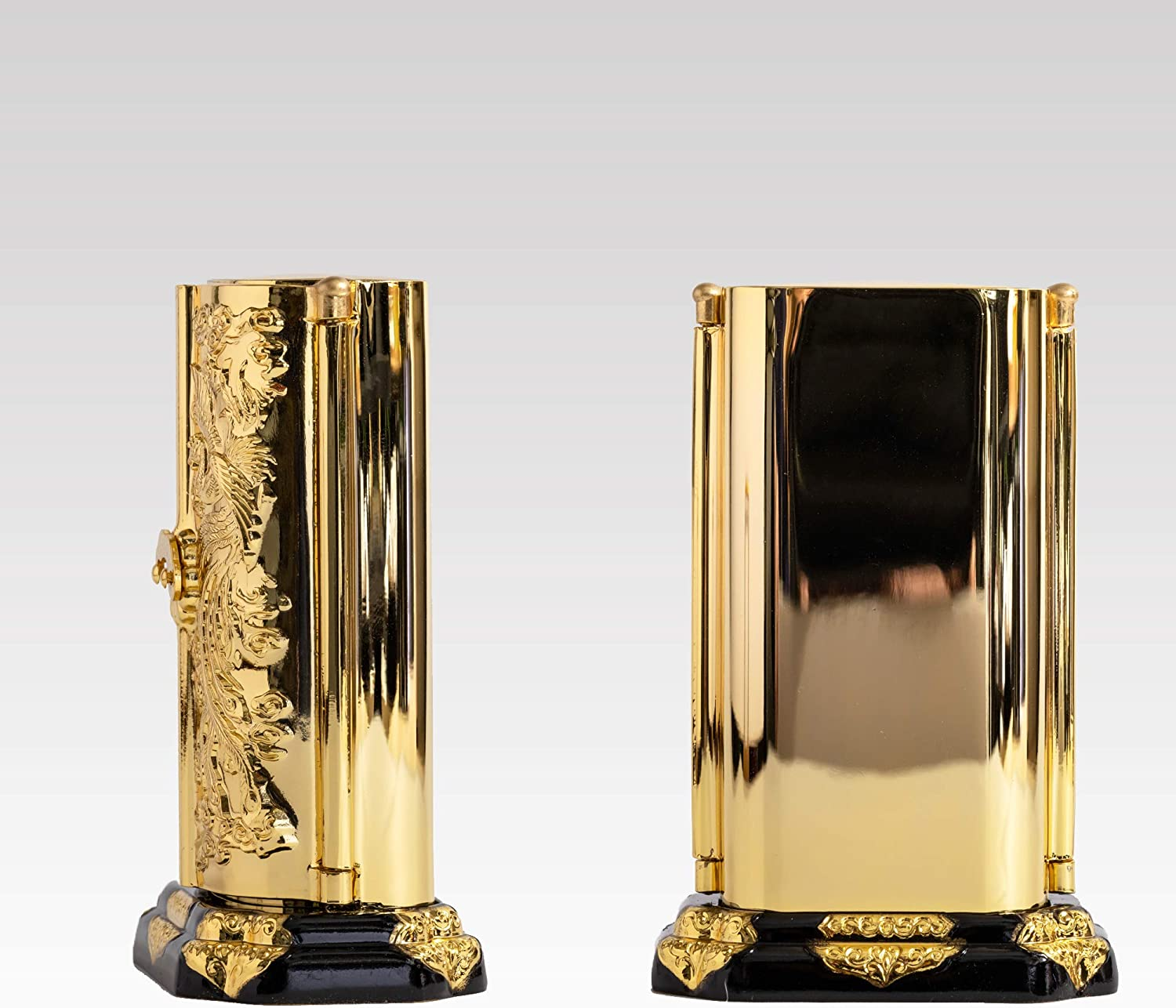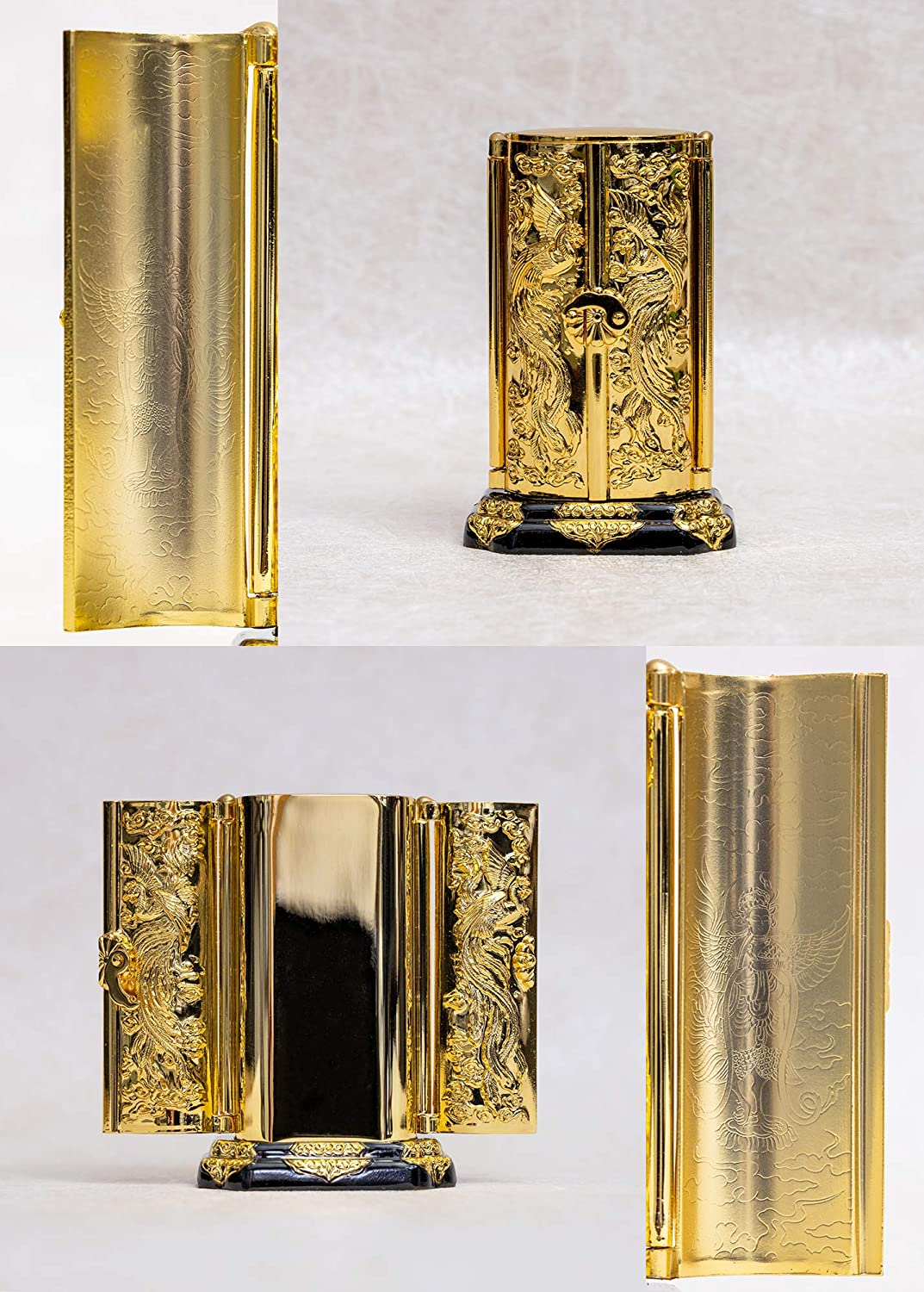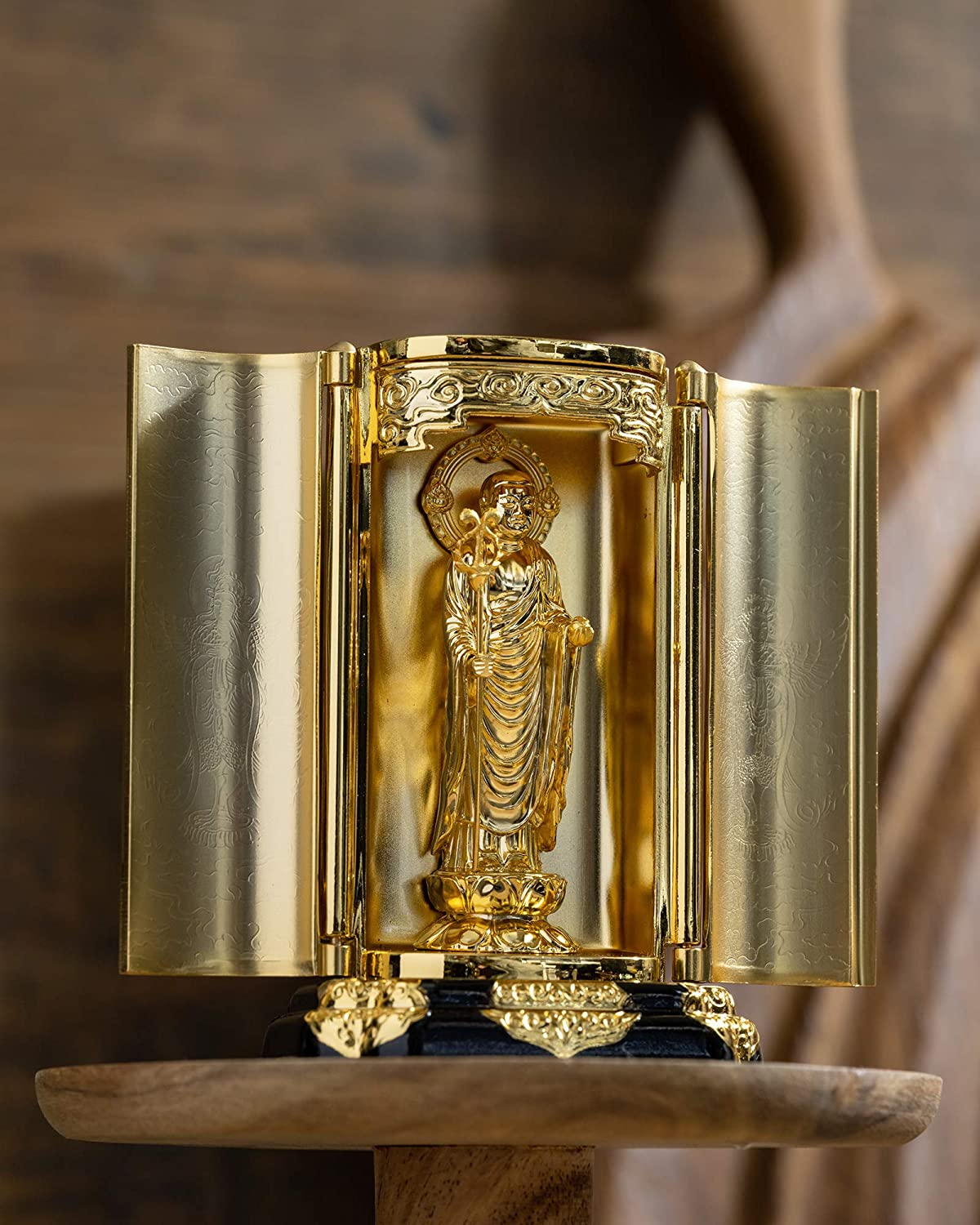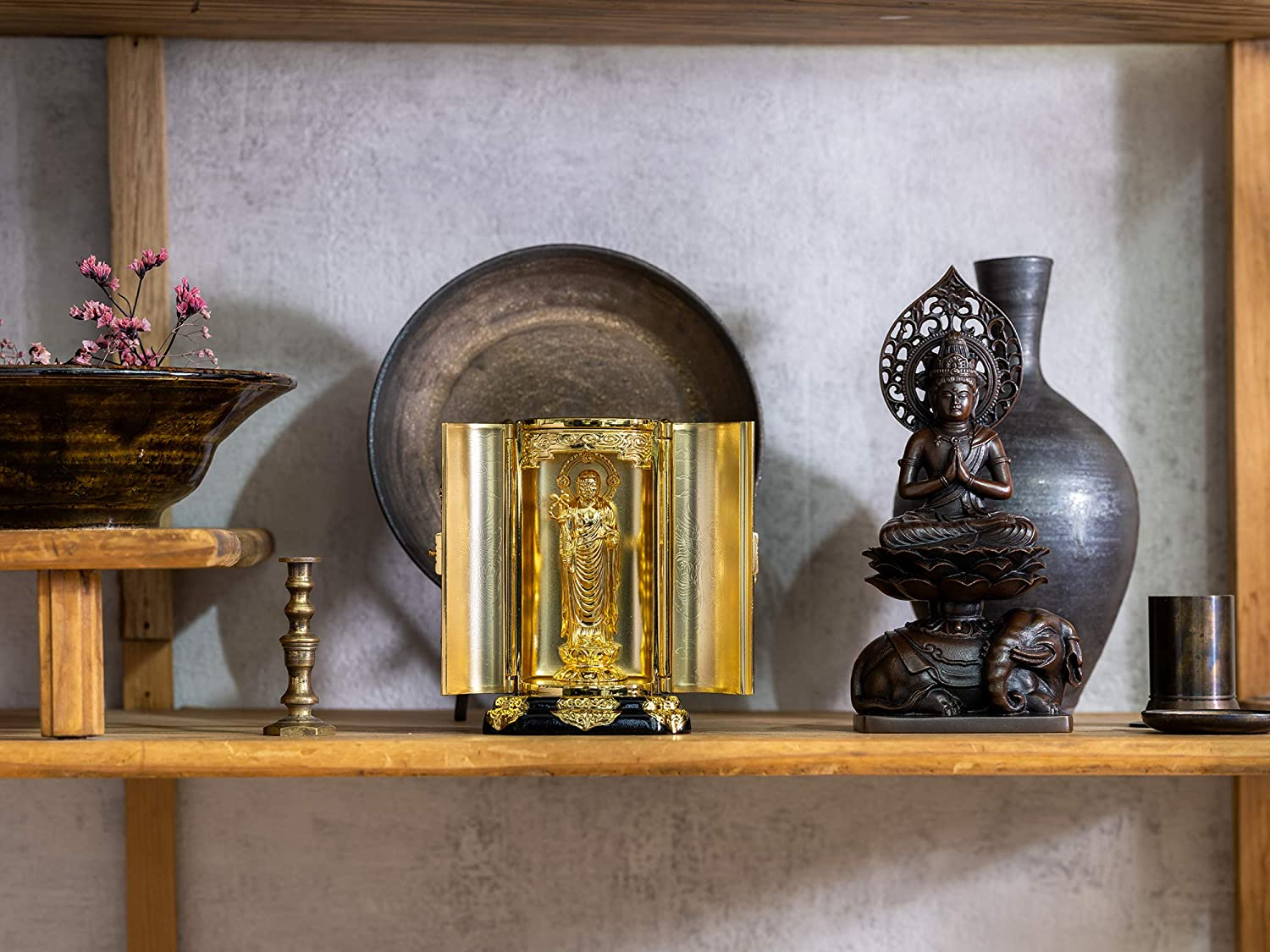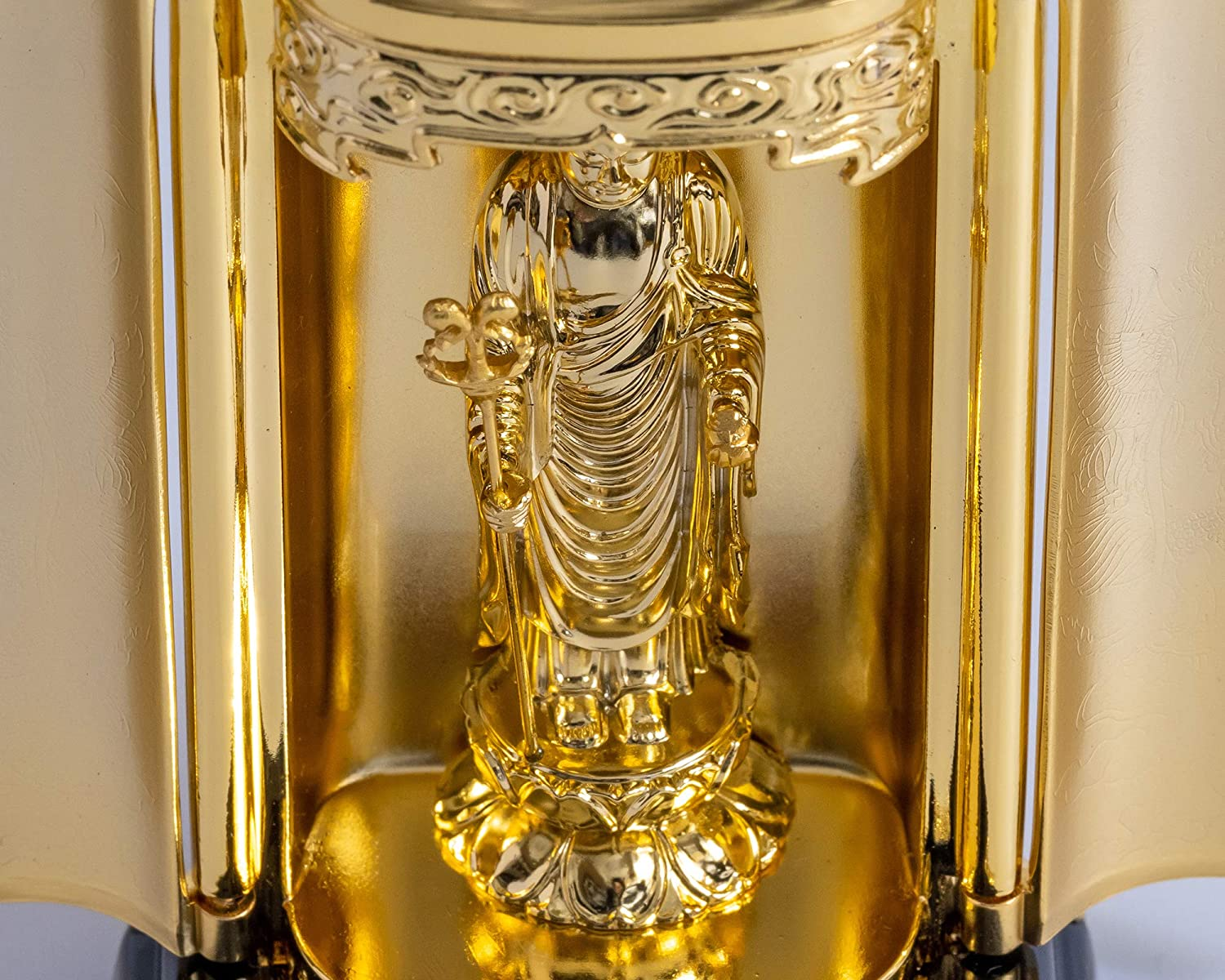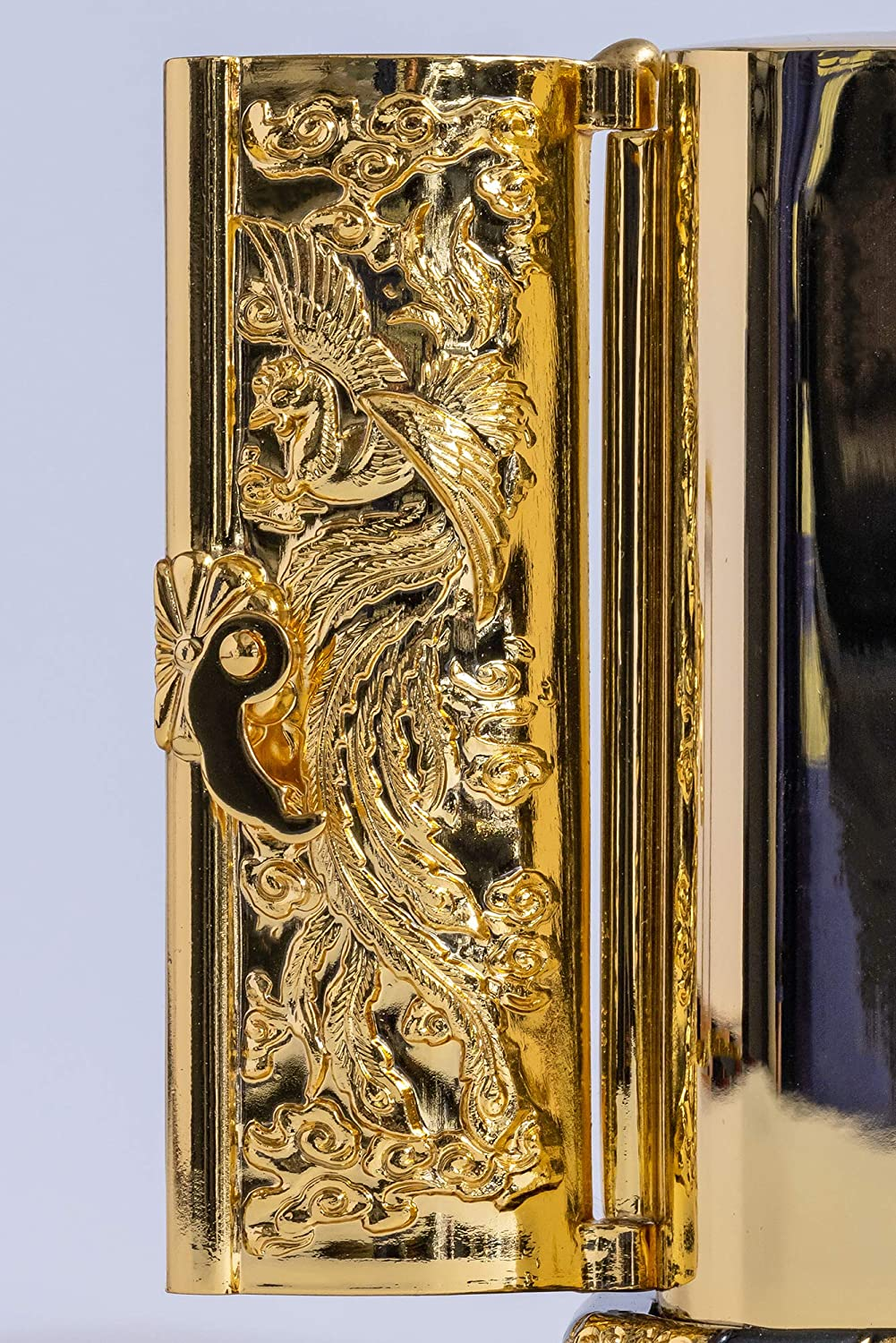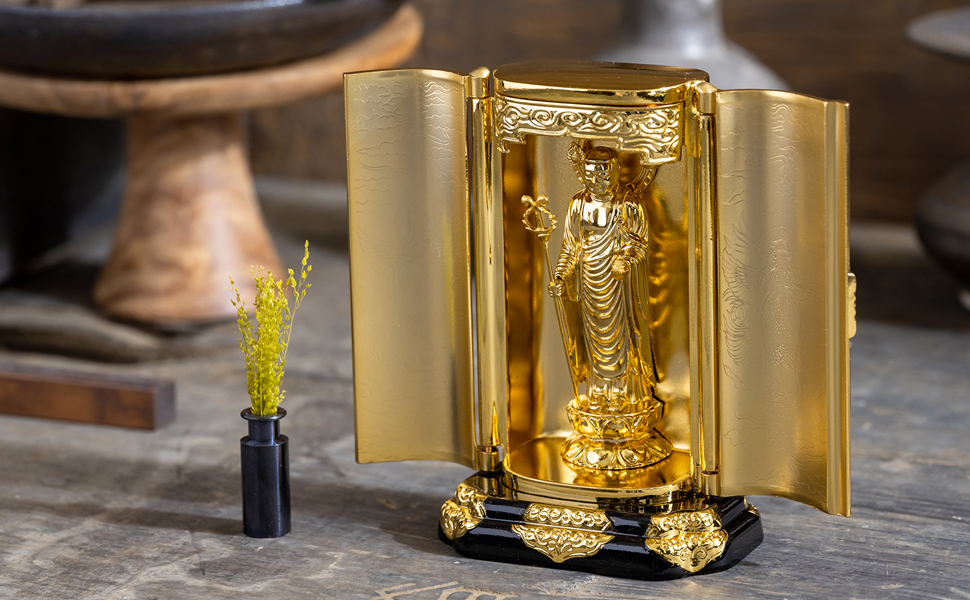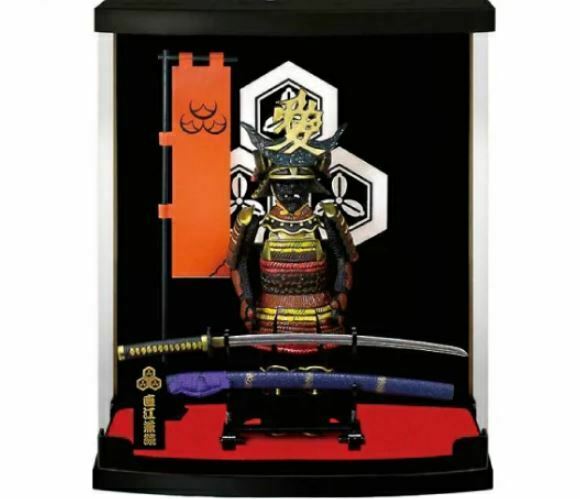-40%
Isami-Danzyuhrou Japanese Buddha JIZOH-BOSATSU in Zushi, From Japan
$ 185.31
- Description
- Size Guide
Description
[Description]Body size (Approximate): Height 9.7 x Width 6.5 x Depth 4.3 cm
Weight (Approximate): 415g
Material: Alloy Metal, pure gold-plated finish
Takaoka Copperware / Made in Japan
In a vanity case
* The Zushi and Buddha statue are fixed and cannot be removed.
Jizo Bodhisattva No illness, healing of illness, prayer for safe delivery, guardian deity of child-rearing
The Jizo Bodhisattva, who is famous for the name of Jizo and controls the land that nurtures all life, is said to wrap and save people with great mercy.
Until Maitreya Bodhisattva appeared in this world 5.67 billion years later, there was no Buddha in this world, so it is a bodhisattva that rescues all living things during that time.
It is said to be the incarnation of the Great Enma, and once in the world, if you join hands with the Jizo Bodhisattva, it will take the place of you and save you from the suffering of hell.
Also, unlike other Buddhas, it is said that they will go directly to the six roads such as humanity to provide relief, and they are familiarly called "Jizo-sama". By the way, Rokudo is made up of a world consisting of humanitarian, heavenly, hellish, hungry, brute, and shura.
Six Jizo statues are often enshrined in the graveyard, and in Buddhism they are called Rokudo Rinkai, and each one is in each world to guide the ancestors and deceased who are reincarnated in one of the six ways. I am in charge of watching over.
A halo with chintamoni on three sides
A halo with a burning chintamoni on the edge of the halo. It is a headlight that expresses the harmoniousness of saving those who suffer from Buddhist wisdom.
Chintamoni has the meaning of a treasure that fulfills various wishes at will, and is often displayed on the pedestal of Amida Nyorai.
It is said that the jewels came from the body of the legendary Indian monster Makara, which is said to swallow all the seawater and fish, and from the brain of the dragon god. It is said to create the treasures that exist.
For this reason, many statues of dragon gods holding jewels in their hands can be seen, and in Buddhist statues, they are often used as belongings such as Jizo Bodhisattva, Kokuzo Bodhisattva, and Nyoirin Kannon as symbols of Buddha and Buddha's teachings. It is an item that appears in.
Gentle face and same shaving as a boy
With a benevolent look, she has a gentle face.
Unusually in a bodhisattva, it has a rounded head like a monk and a white urna on its forehead. Being in the shape of a buzz cut is a sign of the gentle feeling that "we are close to all sentient beings."
A cane that protects you from beasts and vipers
In the right hand is a cane that disperses bad things called a scepter. In many cases, there are six metal rings on the top, which means that you are going around the six roads. It is a must-have item for Jizo who are walking around the world and saving people.
A jewel that fulfills all wishes
On the left hand is an onion-like ball called a "jewel". The official name is "Chintamoni", a great treasure pearl that can cure illness and get everything you want.
Kasaya with a strong presence without decoration
Simple clothes with a piece of cloth. This is also the same as a monk and wears a kasaya.
Lotus flower in the shape of a lotus flower
The lotus, which can be said to be the symbol of the Buddha statue, is called a beehive because the tentacle (the center of the flower) is round and has many holes, and it resembles a beehive. It is
India is a hot country, the cool waters are the ideal place, and the lotus flowers that bloom on the surface of the water represent the ideal place. Lotus flowers have the property of repelling water even in the mud, and they are clean without being polluted by the mud. It was in line with the doctrine we were aiming for.
There are some pains in this world, which cannot be avoided, but it is the most popular pedestal of Buddhist statues, which means to accumulate virtue and make your own flowers bloom.
Deep relationship with Yama
The Jizo Bodhisattva is closely related to the King of Hell, Enma, and can be seen in the "Hell Painting", which depicts the scene where King Enma judges the dead.
Enma was originally an Indian god and was later incorporated into Buddhism. When passed down to China along with the belief in hell, Enma becomes one of the ten kings who judge the sins of the dead during their lifetime, and the Jizo Bodhisattva becomes a Buddha who plays the role of a lawyer to help the dead who receive the judgment.
This belief is based on the false religion "Ten Kings" made in the Tang dynasty, but it has been handed down in Japan during the Heian period. With the spread of Mappo thought, it is thought that people will go to hell when they die, and the Jizo Bodhisattva who saves people in hell has come to be worshiped in Japan.
Since Enma Daiou is extremely busy, there are occasional misjudgments, and it is the Jizo Bodhisattva who knows what he did during his lifetime to rescue the dead. There is also such an anecdote of Jizo in "Konjaku Monogatari Shu".
Rescue children in the Sanzu River
It is said that a child who died at an early age piles stones on the riverbank of the Sanzu River to atone for the crime of unhappiness. Jizo saves a child who is destroyed by a demon when he piles up stones, saying, "I think I'm a dead parent."
This idea was popularized among the common people in the popular beliefs made in medieval Japan. Based on this, Japan's unique belief that bibs are hung on the Jizo statue as a bodhisattva that protects children and that toys and sweets such as windmills are offered is connected to the present.
It is a recent event that Koyasujizo was built for Mizuko kuyo.
ZUSHI can be used as a Buddhist altar in a small space
The pure gold-plated kitchen made in the casting town of "Takaoka" is made with precision in every detail, and when you open the double door, a Buddha statue appears with a divine glow.
Even if you don't have a place to put a Buddhist altar, you can enshrine it in your study, living room, kitchen, entrance, etc. with this small kitchen.
The best Buddha statue casting in Japan
Takaoka, a copperware town that boasts the largest production area in Japan for Buddhist statue casting
With a land pattern that is deeply related to Buddhism, Buddhist statues, altars, and Buddhist altars are also actively manufactured, and each one is made with great care by the skill and rich sensibility of craftsmen who inherit traditional crafts such as casting, finishing, and coloring. I will.
This cast Buddha made in such a town of Takaoka is prototyped by Mr. Hideun Makita, a "master of Buddhist statues" called "Busshi", and a highly accurate mold is made from the prototype.
The die-casting method, in which metal is poured into a mold at high pressure and solidified, is more accurate than other castings, and is characterized by a smooth and beautiful casting surface.
After that, each item is colored by a skilled craftsman, and the cast Buddha statue is completed.
The face of the Buddha, which is created by combining the delicate technique of "Busshi" and the modern casting method, is very delicate and has a beautiful presence.
It is the best "casting Buddha" that you can feel the existence of Buddha in your daily life.
[Payment]
We accept PayPal only. We only ship item to your PayPal verified address. Payment must be received within 3 Days from the date of purchase.
[Shipping]
Normally, it will be shipped by Japan Post Co. within 10 days of receiving your order.
[International Buyers – Please Note]
You are to bear the import duty and all other local expenses at the destination. (DDU at your place)
Please confirm whether the
items
can be imported or not before ordering.
*Customs clearance policies vary by country. For example, laser pointers are not available in some countries. Therefore, please check your country's customs clearance policy carefully before purchasing. We cannot be held responsible because customs clearance is different at each country.
[Terms of Sale]
We accept returns within 30 days after the item arrives.
Excludes items that have been used, abused, burned, or damaged and in any form after delivery.
[About Us]
We would like to introduce creative / funny / unique / Japanese style / high quality Japanese goods to the world.
We will continue to introduce cool Japanese goods.
